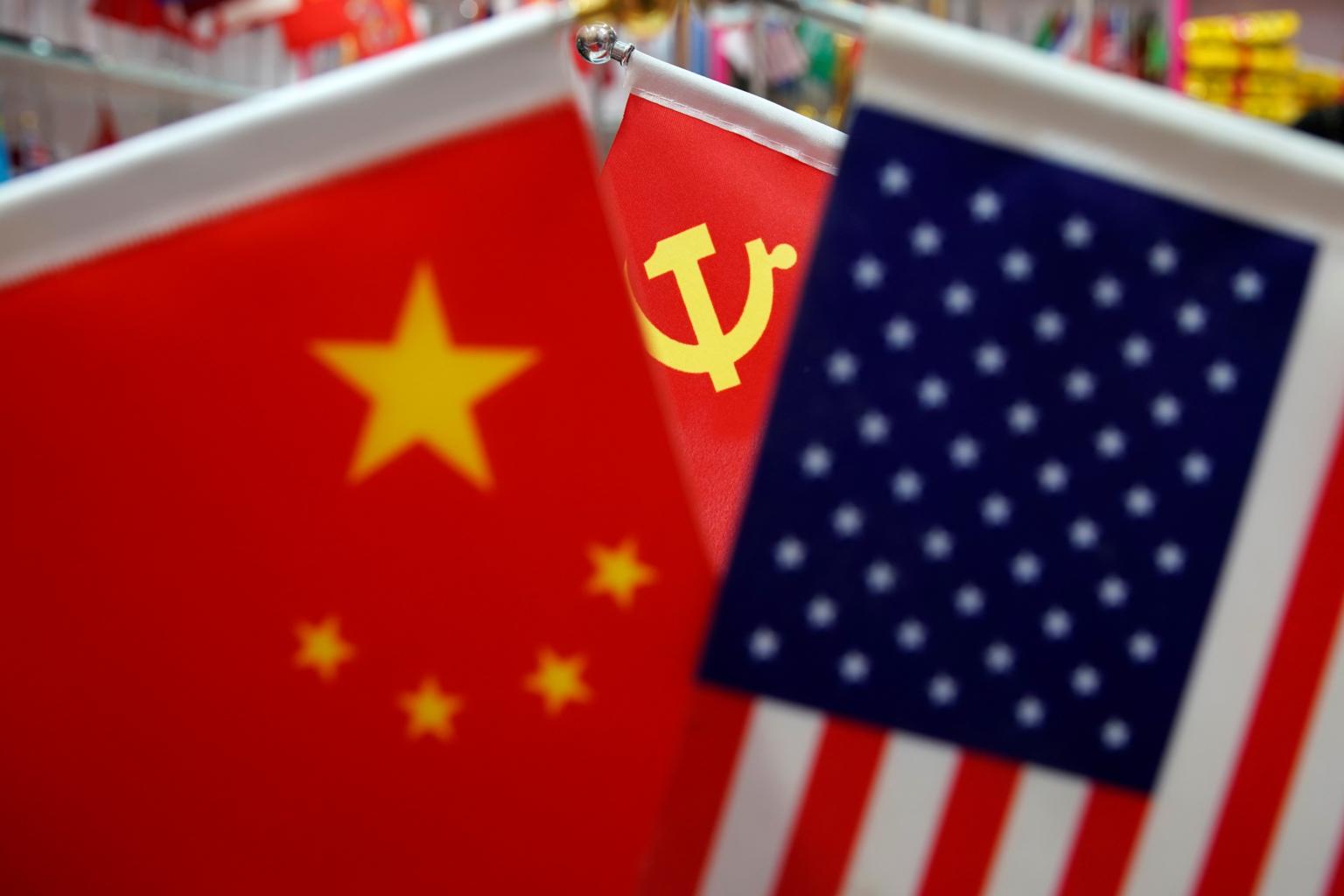China has a $5 trillion war chest to counter US tariffs
Sign up now: Get insights on Asia's fast-moving developments

A severe growth slowdown is likely to produce a "whatever it takes" moment for China's policy makers.
PHOTO: REUTERS
Follow topic:
BEIJING (BLOOMBERG) - United States President Donald Trump's call for the Federal Reserve to mirror its Chinese counterpart misses the mark because Beijing's main defence against trade-war fallout will come from the finance ministry, not the central bank.
If tariffs begin to really hurt China's growth this year, there's plenty of direct fiscal firepower left to stoke the economy before the People's Bank of China (PBOC) would have to cut interest rates. Data released on Wednesday (May 15) showed an across-the-board slowdown in April.
Central and local authorities in China have at least 25.1 trillion yuan (S$5 trillion) unspent in their budgets this year, according to data compiled by Bloomberg using official budget plans. That's two trillion yuan more than the ammunition China had in the same period last year - and about equivalent to the entire annual output of Germany.
"Chinese leaders will be able to better utilise different kinds of policy tools than their US counterparts if the trade war persists, and that's where China's confidence comes from," said Ms Serena Zhou, an economist at Mizuho Securities Asia in Hong Kong.
"From monetary policy and fiscal policy to the dominant role of the state-owned enterprises, China's control on the economy is obviously stronger than the US," she said.
Indeed, PBOC Governor Yi Gang has spent the past year saying he wants to avoid a "flood" of stimulus, pushing back against expectations of benchmark interest-rate cuts as he seeks to curb market bubbles and keep a lid on debt growth. That said, economists from Morgan Stanley and China International Capital Corporation (CICC) to Macquarie Securities expect further cuts to the proportion of deposits banks are forced to lock away, as the authorities look to keep the credit taps flowing.
The authorities have ramped up fiscal expenditure earlier this year than they usually do, with the most obvious front-loading coming in infrastructure-related areas such as transportation and environmental protection.
Even so, more than two thirds of the total "augmented" budget - the general public budget, the government fund budget and special government bonds together - remain unused.
Of course, merely increasing this year's spending isn't the limit of fiscal action if the trade war blows out and impacts economic growth significantly. Officials can support growth by selling more debt via local government financing vehicles and policy banks, though that begins to run counter to the goal of cleaning up debt.
"China may step up its pro-growth policies if the US imposes additional tariffs on US$300 billion worth of Chinese goods", and the preferable policy options include expansionary fiscal policy, such as tax and fee cuts, according to CICC economists.
A severe growth slowdown is likely to produce a "whatever it takes" moment for China's policymakers. Otherwise, the Communist Party faces failure to meet its long-term growth target, just in time for its centenary in 2021.
For its part, the PBOC has also appeared to be leaning towards an easing bias since this month as trade tensions escalate.
Compared to the room for more fiscal stimulus, the PBOC has less space to manoeuvre and will likely stick to the "targeted approach" for now. Universal cuts to reserve-requirement ratios and interest rates are, however, on the table if the economy faces greater challenges, said Mr Wang Yifeng, chief analyst of banking at Everbright Securities Co in Beijing.
The central bank has appeared to be more accommodative in open market operations since early May, adding liquidity to stabilise market sentiment. Monetary policy officials also sought to ease investors by saying it has ample policy room and tools to deal with any uncertainties.
Hong-Kong-based Morgan Stanley economist Robin Xing said that "we can't quantify the impact of the trade war on corporate sentiment, so the real influence may be larger" than what economist estimates suggest, which reinforces the case for more pro-growth policies.

